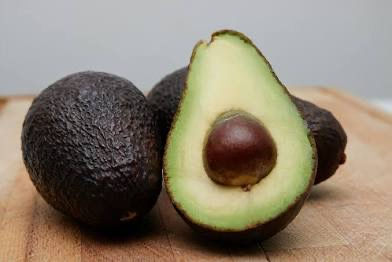Exploring Avocados from Origin to Modern Day
- Heather Marie Stanley

- Jul 26, 2025
- 5 min read

Origin and Evolution
Avocados, scientifically known as Persea americana, are native to the Americas, with strong evidence suggesting their origin in Mesoamerica. Researchers believe the avocado tree was first domesticated over 5,000 years ago, likely in the highlands bridging south-central Mexico and Guatemala, with Puebla, Mexico, often cited as the “motherland” where the fruit flourished nearly 10,000 years ago.
Archaeological findings, such as domesticated seeds found with Incan mummies dating back to 750 B.C. in Peru, and evidence of cultivation in Mexico by 500 B.C., support this timeline. The avocado’s evolution was shaped by polyploidy events, where chromosome duplication occurred, leading to genetic diversity. Modern commercial varieties are hybrids, resulting from selective breeding by indigenous peoples for larger, thicker-skinned fruits that were easier to transport and more productive, as noted in recent research from UC Santa Barbara published in the Proceedings of the National Academy of Sciences on March 6, 2025.
Historically, before domestication, the avocado’s survival may have depended on extinct megafauna, such as gomphotheres and giant ground sloths, which could swallow the fruit whole, dispersing the seed after excretion. This “ghost of evolution” theory, as described by science writer Connie Barlow, highlights the avocado’s unique evolutionary path, transitioning from a wild berry to a cultivated crop. Spanish conquistadors in the 1500s encountered avocados in village markets, introducing them to Europe and renaming them from the Aztec word “ahuacatl” to “aguacate,” eventually becoming “avocado” in English by the 17th century, with the first mention in 1696 by Sir Henry Sloane.

Social Impact
Avocados have significant social and economic implications, particularly in major producing countries like Mexico, which supplied 29% of the global harvest of 10.5 million tonnes in 2023, according to Wikipedia. The demand for avocados, driven by global markets, has led to increased cultivation, often in plantation-style monoculture farms, which can provide economic opportunities for farmers. However, this expansion has not always brought stability and prosperity. In Mexico, the rise in avocado prices has been linked to exploitative practices, with reports of low wages and poor working conditions for farm workers, as noted by the Food Empowerment Project on August 25, 2022.
Additionally, in regions like Michoacán, organized crime, including cartels, has been involved in controlling production, leading to extortion, orchard burnings, kidnappings, and murders, cutting into farmers’ profits and creating insecurity, as highlighted by LeafScore on August 6, 2023.
Culturally, avocados have become a symbol of healthy eating, popularized by social media trends like avocado toast, influencing dietary habits worldwide. This trend has also been tied to economic discussions, with the avocado sometimes seen as a marker of millennial spending, as discussed in a Babbel article on June 28, 2022, reflecting both cultural and economic symbolism.

Environmental Impact
The environmental impact of avocado production is a growing concern, driven by the fruit’s water-intensive nature and global demand. Avocado farming requires significant water, with estimates suggesting 320 liters per fruit in some regions like Petorca, Chile, compared to 70 liters on average, as reported by Greenmatch on October 3, 2024. This high demand exacerbates water shortages in drought-prone areas, particularly in Mexico, where production is concentrated. Deforestation is another major issue, with up to 25,000 hectares of forest cleared annually in Michoacán for avocado plantations, threatening biodiversity and habitats for species like jaguars and cougars, according to the World Economic Forum on February 24, 2020.
The carbon footprint of avocados is also notable, estimated at 425g of CO2e per avocado, largely due to transportation from producing countries like Mexico to markets in Europe and North America, as noted by The Eco Experts on December 2, 2024. Soil degradation is another concern, with monoculture farming and heavy agrochemical use depleting soil nutrients, increasing vulnerability to diseases, as seen with the potential for outbreaks similar to Panama disease in bananas, according to the Sustainable Food Trust on January 31, 2020. While some argue avocados have a lower environmental impact than meat, the rapid expansion of production, especially in response to global demand, poses challenges for sustainability, with calls for international certification of sustainable farming practices to mitigate deforestation and aquifer exploitation, as suggested by the World Economic Forum.
Health Benefits
Avocados are widely recognized for their health benefits, earning them the “superfood” label. They are nutrient-dense, providing a rich source of monounsaturated fats, particularly oleic acid, which is heart-healthy, as noted by Healthline on June 23, 2024. Half an avocado contains about 10% of the daily value for potassium, 15% for folate, and significant amounts of vitamins K, C, E, and B vitamins, according to the Harvard T.H. Chan School of Public Health on April 15, 2022. Research suggests these nutrients support heart health by lowering bad cholesterol (LDL), with studies indicating an avocado per day can help manage cholesterol levels, as reported by Cedars-Sinai on September 25, 2017.
The fiber content, around 13.5 grams per avocado according to the USDA, aids digestive health by promoting regular bowel movements and supporting gut bacteria, as discussed by EatingWell on January 29, 2025. Avocados also promote satiety, helping with weight management, with evidence suggesting they can delay hunger for up to five hours, as noted by Health.com on June 5, 2025. Eye health benefits come from antioxidants like lutein and zeaxanthin, which may reduce the risk of age-related macular degeneration, as per WebMD on March 21, 2024. Additionally, the vitamins and fats in avocados support skin health, potentially improving elasticity, and vitamin K contributes to bone health, possibly preventing osteoporosis, as outlined by Medical News Today on July 7, 2025.

Symbology
Avocados hold deep symbolic meaning, rooted in their Mesoamerican origins. For the Aztecs, the fruit was a symbol of fertility and love, tied to its shape and the Nahuatl name “ahuacatl,” meaning “testicle,” reflecting its association with virility, as discussed in the Symbolism Guide on August 15, 2023. In ancient Maya culture, the avocado represented the 14th month (K’ank’in) on their calendar, underscoring its mythological importance, as noted by Avocados From Mexico on November 6, 2018. The fruit was often used in religious ceremonies, symbolizing prosperity and strength.
In modern times, avocados have taken on new symbolic roles, particularly as a marker of health and wellness, popularized by trends like avocado toast, which has been linked to millennial culture and economic discussions, as seen in a Babbel article on June 28, 2022. Spiritually, avocados are seen as symbols of abundance, nourishment, and new beginnings, with dream interpretations suggesting happiness and fertility, as per Auntyflo.com on June 11, 2017. This duality reflects their evolution from a cultural icon in ancient societies to a global symbol of health and lifestyle in contemporary times.











Comments